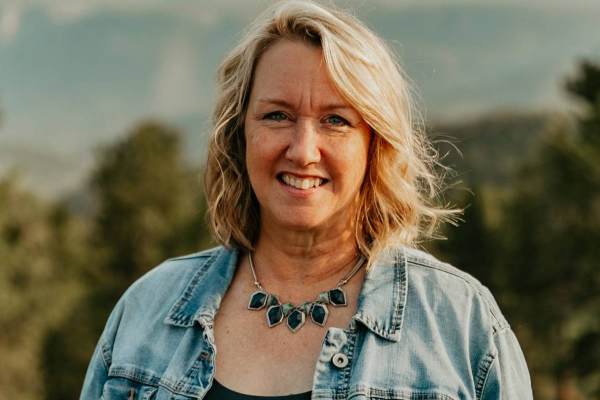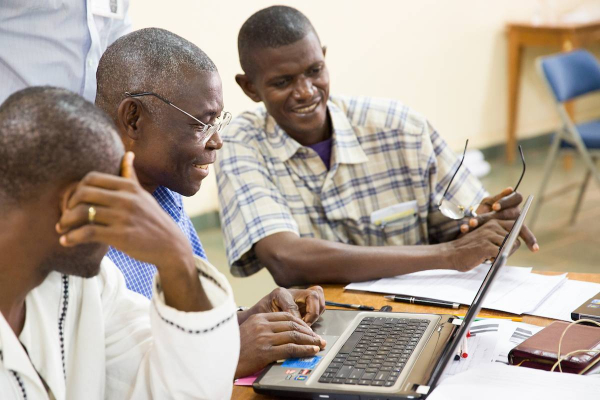4 Things Missionaries Are Grateful to Learn

Life as an international missionary presents many opportunities to learn a variety of new skills, languages, customs and viewpoints. But no matter where in the world they serve, missionaries are often especially grateful as their perspectives grow in these four important areas:
1. They gain a bigger view of home.
For many people, the word “home” evokes images of a particular house, town or region, but for people who live and work overseas, the concept of home can be much more complex. If you ask a missionary kid where they’re from, the answer is likely to be a blank stare or a rambling recitation of all the places they’ve lived recently. My husband once asked a missionary family where they considered home, and each of the five kids gave a different answer. And those answers spanned four continents! The parents were just as conflicted as the kids.
Building a life in one country while maintaining roots in another can result in a constant, unresolved feeling of homesickness. While this may sound unsettling, it can actually be a beautiful reminder of an eternal truth: We aren’t home yet, because we’re citizens of heaven (Philippians 3:20).
Moses understood the tension of living a nomadic life in obedience to God’s direction. Many missionaries grow to identify intimately with Moses’ response to this sense of rootlessness: “Lord, through all the generations you have been our home!” (Psalm 90:1, NLT) God himself becomes their stability and shelter, no matter how much transition they face. This allows missionaries the freedom to invest joyfully wherever they are.
2. They develop broader connections and empathy.
When I was a teenager, my mom and I were caught in a massive earthquake in the northern Philippines. While we were uninjured, two people were killed when the store we’d left seconds before the earthquake partially collapsed. Many more across the area lost their lives or loved ones. These were real people enduring real suffering right in front of us. This wasn’t a tragedy happening from afar; our personal connection with Filipino friends and our love for their country deepened our compassion and made it impossible to dismiss their pain.
As missionaries build relationships and share experiences — the dramatic and mundane — with people from other countries and cultures, their empathy broadens to include those with backgrounds and worldviews very different from their own. Missionaries learn to see the personhood of the people around them and value the unique beauty and wisdom they offer.
As missionaries attend training sessions and conferences with colleagues serving around the globe, the world continues to feel smaller and more interconnected. It becomes easier and more exciting to imagine the worshipful unity described in Revelation 7:9: “After this I saw a vast crowd, too great to count, from every nation and tribe and people and language, standing in front of the throne and before the Lamb. They were clothed in white robes and held palm branches in their hands” (NLT).
3. They crave Scripture more deeply.
Until my husband and I moved our family to Papua New Guinea, I didn’t truly understand how critical Scripture was to my daily life. I’d read it faithfully and valued it before, but as the friction and stress of our new life overseas exposed my heart, the Bible went from being important to me to being like oxygen for my soul. I couldn’t function without it. My craving for God’s Word has continued beyond our time overseas, permanently reshaping the way I approach my faith, relationships and routines.
Like me, many missionaries’ craving for Scripture deepens as they encounter situations that push them out of their comfort zones. They recognize that they can’t love or serve well outside of the transforming power of the Holy Spirit, and their hearts begin to cry out with David: “O God, you are my God; I earnestly search for you. My soul thirsts for you; my whole body longs for you in this parched and weary land where there is no water. … You satisfy me more than the richest feast. I will praise you with songs of joy” (Psalm 63:1, 5, NLT).
4. They have a better understanding of their place in God’s story.
God’s ongoing redemption story is epic: “And this is the plan: At the right time he will bring everything together under the authority of Christ — everything in heaven and on earth” (Ephesians 1:9, NLT). It can be difficult to see our roles in a restoration story of this magnitude, but each member of the body of Christ plays a part.
My father-in-law spent two decades training missionaries how to record scripts read in minority languages that would be dubbed into the “JESUS” film. It was quiet, humble work that was often invisible and uncelebrated. But whenever a group of people gathers to watch the “JESUS” film in their language, he’s reminded that the work he did has an eternal impact.
As missionaries serve, they learn how their small, faithful acts of obedience — even things that are unseen or feel insignificant — can have far-reaching impacts. They also grow to appreciate more keenly how the work of colleagues around the world connects with their own, as well as how their prayer and financial partners are critical teammates in accomplishing God’s work.
You don’t need to have a career in missions to learn these four lessons! To begin gaining a bigger view of home, read Revelation 21:1-7 and allow yourself to long intensely for the beauty and restoration waiting in heaven. To develop broader connections and empathy, seek out relationships with people from different backgrounds and cultures in your community and listen attentively to their experiences. To crave Scripture more deeply, read God’s Word consistently and ask his Spirit to show you how each passage applies to your life. And to have a better understanding of your place in God’s story, learn about the work God’s people are doing around the world and invest your time or resources to enable their efforts to continue. As your perspective expands, your gratitude will grow as well!
Everyone appreciates encouragement — including missionaries. Send a quick note of encouragement to a missionary right now!






